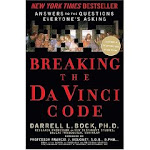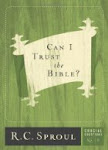ISBN (10): 031026345x
I have intended to put this review up for some time now and here it is. A little background first though…Rob Bell, author of this book, is the founding pastor of Mars Hill church in Grand Rapids, Michigan.
I first heard of Rob Bell at a church I used to attend, where his Nooma videos were shown (Nooma is a play on the Greek pneuma, which means spirit). The videos were quite disturbing to me and I decided to find out more about them and their creator. It turned out that Bell is part of a movement commonly referred to as the emergent church, a movement that embraces the idea that we cannot really know what Scripture teaches and that to say you know what it teaches is arrogant. That, I know, is a very simplistic explanation for it but it’s all I’m willing to do at the moment. If you want to know more, just Google the term and you’ll find out much more about it, including the fact that Rob Bell and Brian McLaren are some of the bigger proponents and defenders of the movement.
At any rate, my intention was to read the entire book and write up a lengthy review of it, but in only the first couple of chapters I grew tired of it and nauseated by its theme.
Philippians 4:8 tells us that “whatever things are true, whatever things are noble, whatever things are just, whatever things are pure, whatever things are lovely, whatever things are of good report, if there is anything praiseworthy- meditate on these things.”
With this admonition weighing heavily on my mind, I decided to stop reading the book and concentrate my energies on something else! I am still writing a mini-review because I know there are those out there who might wonder what is so bad about the book. I will tell you because I too am one of those people…I identify with Thomas because of this; being myself the type of person that would have said, “prove it.”
To begin with, I confess that I read the book with a prejudiced mind, already knowing plenty about Rob Bell and his videos and being far less than impressed by them. So bear that in mind as well…I make no apologies for it.
Rob Bell states very clearly in the beginning of the book that he believes we must always be reforming the faith. He cites Martin Luther and the other reformers as examples of this and then identifies himself with them (though they would beg to differ I think). He then takes the idea of always reforming to the extreme by saying on page 012 that he does “not mean cosmetic, superficial changes like better lights and music, sharper graphics, and new methods with easy-to-follow steps. I mean theology: the belief about God, Jesus, the Bible, salvation, the future. We must keep reforming the way the Christian faith is defined, lived, and explained.”
Though Bell thinks he’s a successor of those worthy men that brought about the Reformation, his goal is really to overturn all that they actually taught. He would find no adherents among the men who fought and died for the idea of “sola scriptura” since he disdains those who hold to the Word as truly authoritative.
He says, for example, “Jesus at one point claimed to be the “way, the truth, and the life.” Jesus was not making claims about one religion being better than all other religions. That completely misses the point, the depth, and the truth.”
Hmmm….Is that true? Jesus did not mean that all other religions were false? He was not speaking of eternal life here? I don’t know dear reader…why don’t you turn to the Bible and read John 13-17? Then decide whether or not Jesus wasn’t talking about how to be saved!
On page 026 we find the following passage:
“What if tomorrow someone digs up definitive proof that Jesus had a real, earthly, biological father named Larry, and archeologists find Larry’s tomb and do DNA samples and prove beyond a shadow of a doubt that the virgin birth was really just a bit of mythologizing the Gospel writers threw in to appeal to the followers of the Mithra and Dionysian religious cults that were hugely popular at the time of Jesus, whose gods had virgin births? But what if as you study the origin of the word virgin, you discover that the word virgin in the gospel of Matthew actually comes from the book of Isaiah, and then you find out that in the Hebrew language at that time, the word virgin could mean several things. And what if you discover that in the first century “born of a virgin” also referred to a child whose mother became pregnant the first time she had intercourse?…Could a person still love God? Could you still be a Christian?…if the whole faith falls apart when we reexamine and rethink one spring, then it wasn’t that strong in the first place, was it?”
What do you think of that one?
The reference to the spring, by the way, is an analogy Bell uses of a trampoline…he says that doctrines are like the springs on a trampoline and they help you to understand God but they are not the point…the point is the jump (page 022). In other words the experience is what matters…not the doctrines!
Oh I don’t know…I think I’ll stick to 2 Timothy 3:16 on this one, you know, where it says that “All Scripture is given by inspiration of God, and is profitable for doctrine…”
And while we are on the point of Scripture being inspired, should we try and remember that the virgin birth is not JUST a spring but a foundational Truth of the faith? Yeah…I think we should! If Bell thinks Christianity can exist without it he is wrong. You see, if we truly believe what 2 Timothy 3:16-17 says, then we must assume that includes passages like Matthew 1:18-25 and Luke 1:26-35.
Guess what?
These passages affirm a literal virgin birth! So regardless of what kinds of questions Bell comes up with, and regardless of his repetition of what are by now common and tiresome attacks upon the doctrine of the virgin birth, his faith is the one that needs to be tested for validity and strength because no true believer can possibly entertain the thought that the virgin birth is anything other than a foundational Truth of the faith.
Bell takes pains to assure his readers that he “affirms the historic Christian faith, which includes the virgin birth…” but then he makes the comment cited above about the strength of ones faith if the spring is reexamined.
Allow me to say before moving on…we do NOT reexamine the virgin birth…we do NOT reexamine the Trinity! We study the Word to find out what it true and we affirm what is taught there, but to reexamine these truths with an eye towards rethinking them is what used to be called heresy. I don’t know…does anyone think differently?
Well, I still have pages and pages of notes but I just do not have the stamina any longer…I think I will go study the Bible now! My final thought on this book is that it is dangerous in the sense of how many people will embrace what it teaches. The true Believer will read it and set it aside, being warned about the wolf among us. But so many others will be drawn into a false sense of faith and die in their sins…and that is truly sad. To me, as I read the parts I did, what made me sad was to think of how many people I once respected actually look to Rob Bell as an inspiration…our Lord truly said that many will one day refer to Him as Lord and He will say He never knew them!
You have been warned brothers and sisters.
“…the time will when they will not endure sound doctrine, but according to their own desires, because they have itching ears, they will heap up for themselves teachers ; and they will turn their ears away from the truth, and be turned aside to fables.” 2 Timothy 4:3-4
Saturday, December 22, 2007
Subscribe to:
Post Comments (Atom)





No comments:
Post a Comment